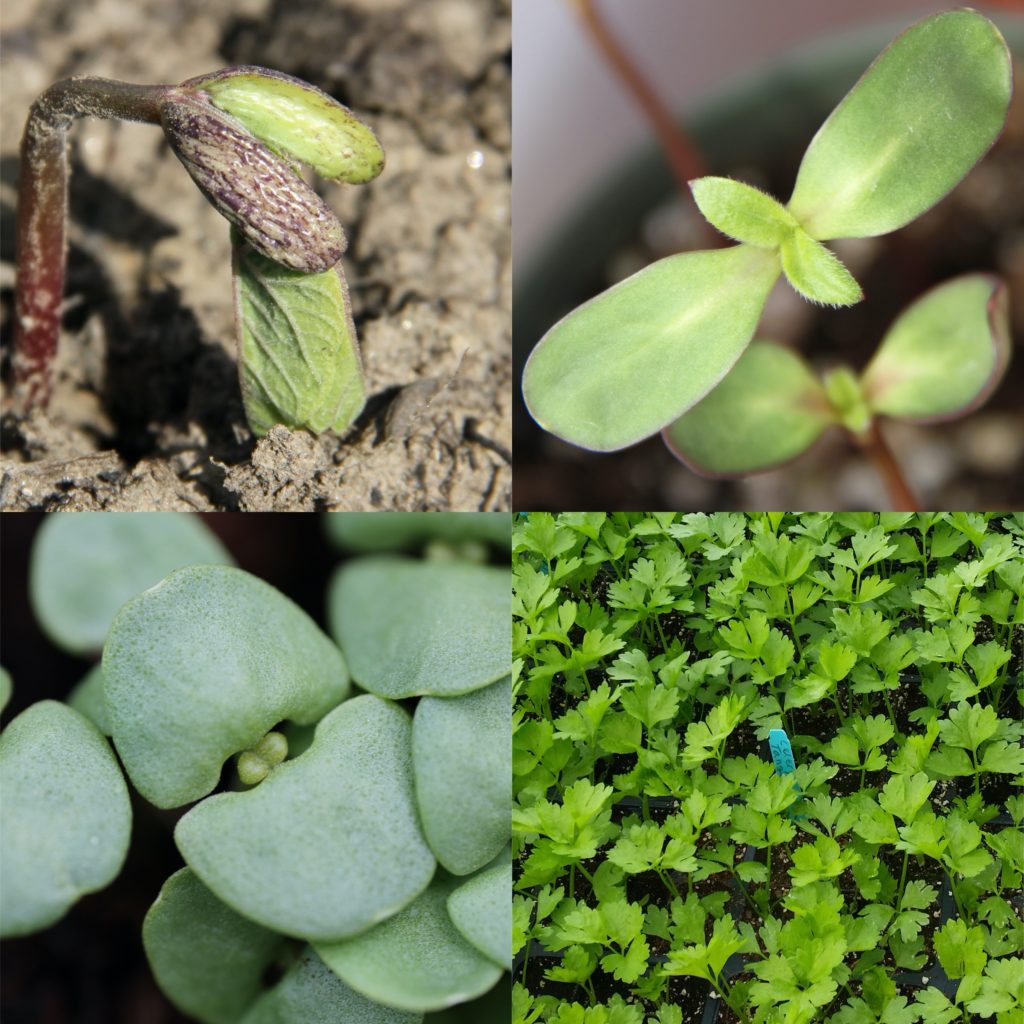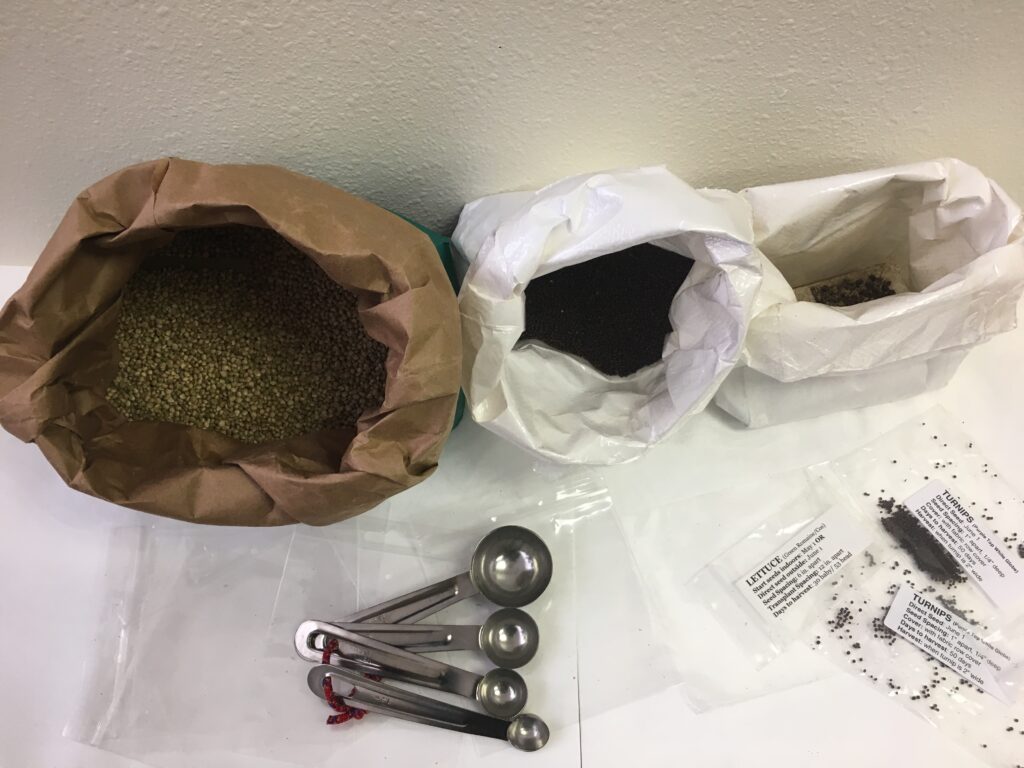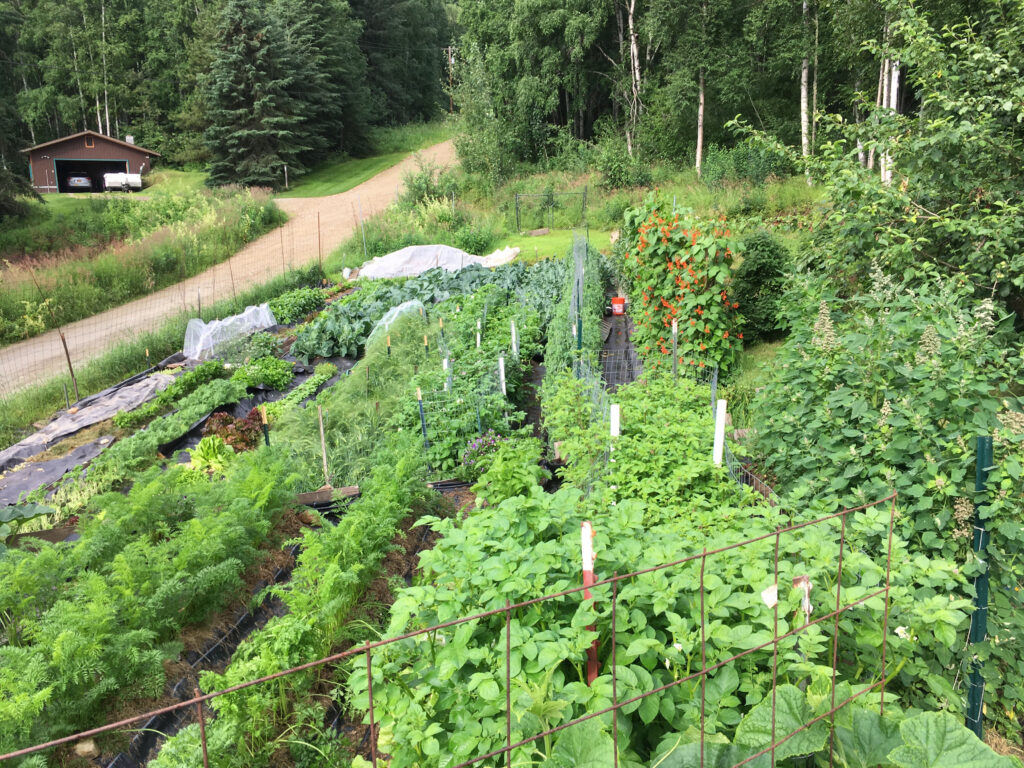Whether it’s your first time gardening or you’ve been at it a long time, this handy garden calendar will help you get started. Villages in Interior Alaska can request a free virtual or face to face workshop with Heidi Rader or another Tribes Extension Educator. Cooperative Extension offers a variety of workshops statewide.
Below is a basic gardening calendar for Interior gardeners. Here is another more detailed seed starting calculator and another resource on getting started gardening.
March 15
- Never grown a garden before? Go to the Cooperative Extension Publication Website for information on everything from seed starting to growing to harvesting your vegetables and flowers.
March 26
- Start your cucumbers and tomatoes intended for a greenhouse.

April 2
- Start your pansies, petunias, and peppers!
April 4
- Join a seed sharing event! If you live in a village in Interior Alaska, contact your Tribal Administrator or Behavioral Health Aide to confirm that they will be hosting a seed sharing event.

April 7
- Start your cosmos, calendula, and most herbs.
April 16
- Start your marigolds, head Lettuce, and corn.
April 23
- Start your cabbage, cauliflower, kale, and broccoli.
- Order Alaska Certified Seed Potatoes.
May 1
- Start your lettuce, Swiss chard, squash, sunflowers, sweet allysum, zucchini, and zinnias.
May 12
- Start hardening off your transplants by bringing them outside on sunny days for longer and longer periods of time. Don’t bring them outside if it’s cold or windy and bring them in at night for starters.
May 14
- Rototill and mix fertilizer in your garden whenever the snow melts and the soil is somewhat dry. It is dry enough when the soil crumbles upon taking a handful and squeezing it.
June 1
- Plant carrots, potatoes, radishes, lettuce, spinach, turnips, peas, poppies, Bachelor Buttons, and nasturtiums directly in your garden.
June 4
- Transplant your plants outdoors starting with your cool season vegetables first.
July 10
- Add additional fertilizer to your garden, if needed.
August 1
- It’s Harvest Time!!! Think about how you’ll preserve your food for the winter. Do you have a pantry, a freezer, or a pressure canner? Find information on food preservation on the Cooperative Extension Website.

August 6
- Hold a Community Harvest Fair. Save your highest quality vegetables and flowers to win the blue ribbon, or grow the biggest turnip or head of cabbage!
September 3
- How was your gardening season? Record which crops did well and what didn’t do so well, so you can improve next year.
September 10
- Clean up your garden site, dig potatoes, and compost extra garden materials.
November 1
- Miss gardening? It’s never too early to plan for next year! Organize a Harvest Fair or Community Garden committee.
November 24
- Get out your jams, jellies, canned and frozen vegetables, it’s Thanksgiving!